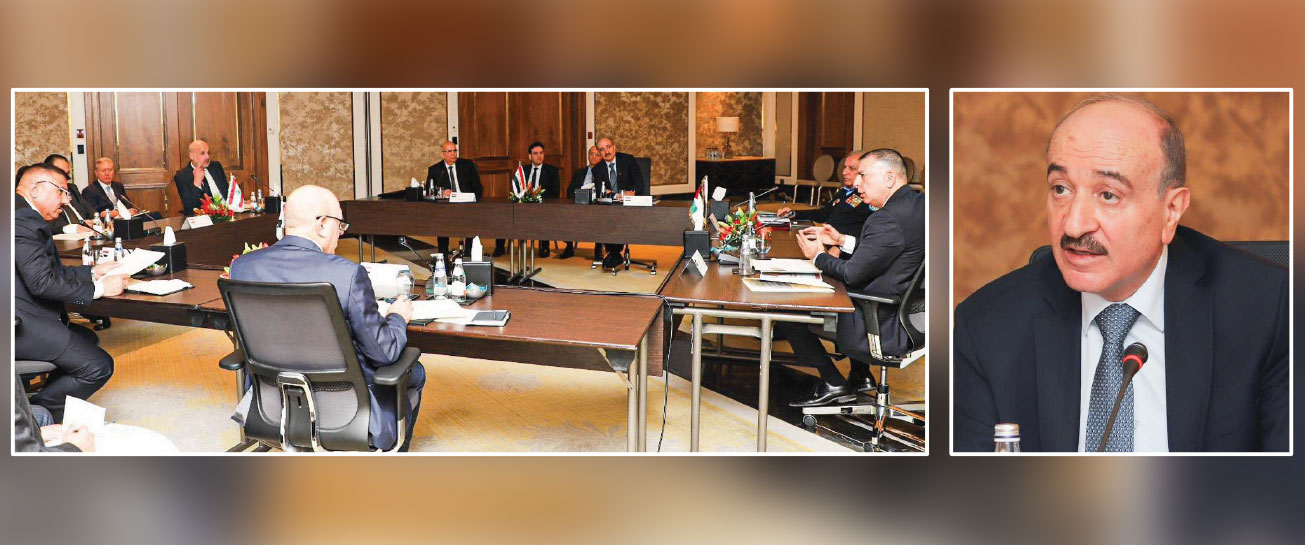A quadripartite meeting convened on Sunday in Amman, Jordan, with Interior Minister Major General Mohammed al-Rahmoun and his counterparts Mazen al-Faraya from Jordan, Abdul Amir al-Shammari from Iraq, and Bassam Mawlawi from Lebanon, to discuss collaborative strategies in combating drug trafficking, a menace threatening regional stability.
The discussions centred on bolstering cooperation to tackle the shared challenges of drug proliferation, aiming to safeguard societal peace. They also delved into augmenting security cooperation to safeguard the collective national interests within the region.
Interior Minister Rahmoun described the ministerial atmosphere as highly constructive, emphasizing the consensus reached to establish a joint cell comprising officers from the drug control departments of Syria, Jordan, Iraq, and Lebanon. This initiative aims to facilitate swift action based on shared intelligence.
Furthermore, it was agreed to streamline communication and coordination among the participating nations to yield tangible outcomes, recognizing that combating this perilous threat necessitates concerted regional efforts.
Minister Faraya of Jordan previously announced the establishment of a joint liaison cell with Syria, Iraq, and Lebanon, aimed at fostering the exchange of expertise, training, and monitoring of drug shipments. He underscored the imperative of collective action, affirming that individual national efforts alone are insufficient to address the magnitude of the drug problem.
In conclusion, the ministers reaffirmed their commitment to collaborative endeavours, recognizing that effective solutions require synchronized efforts and information exchange among neighbouring nations.
This article was translated and edited by The Syrian Observer. The Syrian Observer has not verified the content of this story. Responsibility for the information and views set out in this article lies entirely with the author.


